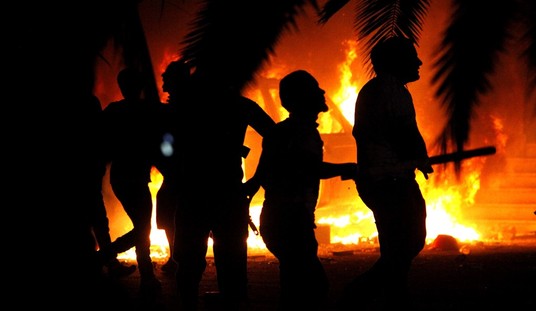The US has long relied on two major alliances in the Middle East to maintain its strength, push for democracy, and supply itself with energy — Israel and Saudi Arabia. Barack Obama has managed to put distance between the US and Israel after a year of bumbling on peace negotiations created even more obstacles to talks than existed when Obama took office, and now Israel finds itself on the brink of war yet again in Gaza. Thanks to the vacillating and contradictory responses to crises sweeping the region, Saudi Arabia may be rethinking its friendship with the US now:
The United States and Saudi Arabia — whose conflicted relationship has survived oil shocks, the Sept. 11, 2001 terrorist attacks and the U.S. invasion of Iraq — are drifting apart faster than at any time in recent history, according to diplomats, analysts and former U.S. officials.
The breach, punctuated by a series of tense diplomatic incidents in the past two weeks, could have profound implications for the U.S. role in the Middle East, even as President Barack Obama juggles major Arab upheavals from Libya to Yemen.
The Saudi monarchy, which itself has been loathe to introduce democratic reforms, watched with deepening alarm as the White House backed Arab opposition movements and helped nudge from power former Egyptian President Hosni Mubarak, another long-time U.S. ally, according to U.S. and Arab officials.
That alarm turned to horror when the Obama administration demanded that the Saudi-backed monarchy of Bahrain negotiate with protesters representing the country’s majority Shiite Muslim population. To Saudi Arabia’s Sunni rulers, Bahrain’s Shiites are a proxy for Shiite Iran, its historic adversary.
Who could have predicted this? Well … just about anyone who wondered how the sight of an American President throwing an ally under the bus would look to our other allies in the region. Obama took 16 days to demand Moammar Gaddafi’s ouster, but only waited half of that time to tell Mubarak that he needed to “transition” power immediately. Syrians have filled the streets for ten days and had the Bashar Assad regime fire on them, killing dozens, and yet Barack Obama hasn’t uttered a word about it. Even his PR flacks are taking a “wait and see” attitude, literally:
On Thursday, the White House press secretary, Jay Carney, issued a statementcondemning what he called “the Syrian government’s brutal repression of demonstrations, in particular the violence and killings of civilians at the hands of security forces.”
The Obama administration said that it was watching to see if Mr. Assad would follow through with the promises made Thursday.
“Words are words,” Mark Toner, a State Department spokesman, told reporters. “We’ll obviously look for action.”
He added, “We were, and obviously remain, deeply troubled by the violence and civilian deaths, especially in Dara’a, at the hands of security forces.”
For Mubarak, Obama appeared on television after eight days to issue a thinly-veiled demand for his ouster, and Mubarak hadn’t attacked demonstrators in the streets at that time. Recall that Mubarak had also promised reforms in the remaining seven months of his “presidency,” a pledge that Obama refused to take seriously. Robert Gibbs reinforced the demand for Mubarak’s removal the very next day by saying that “immediately” meant “yesterday.
Contrast that with those nations openly hostile to the US and the West. It took weeks for Obama to even suggest support for Green Revolution protesters in the streets of Tehran in the summer of 2009. Now Obama will trust Bashar Assad on reform where he refused to do so with Hosni Mubarak. Small wonder America’s friends in the region are more than a little non-plussed.
Granted, the Saudi royal family’s absolute rule generates problems of its own, but it also provides one of the few bulwarks to Iranian hegemony in the region. It also controls the flow of oil into markets from where the US imports it, since we refuse to pursue our own resources here at home. That makes them strategically important and the relationship crucial to actual national-security concerns for the US. If Obama loses the Saudis, it will create economic, diplomatic, and military chaos that will take years to correct.








Join the conversation as a VIP Member